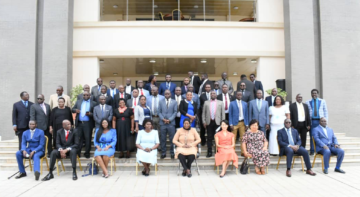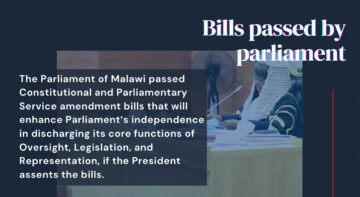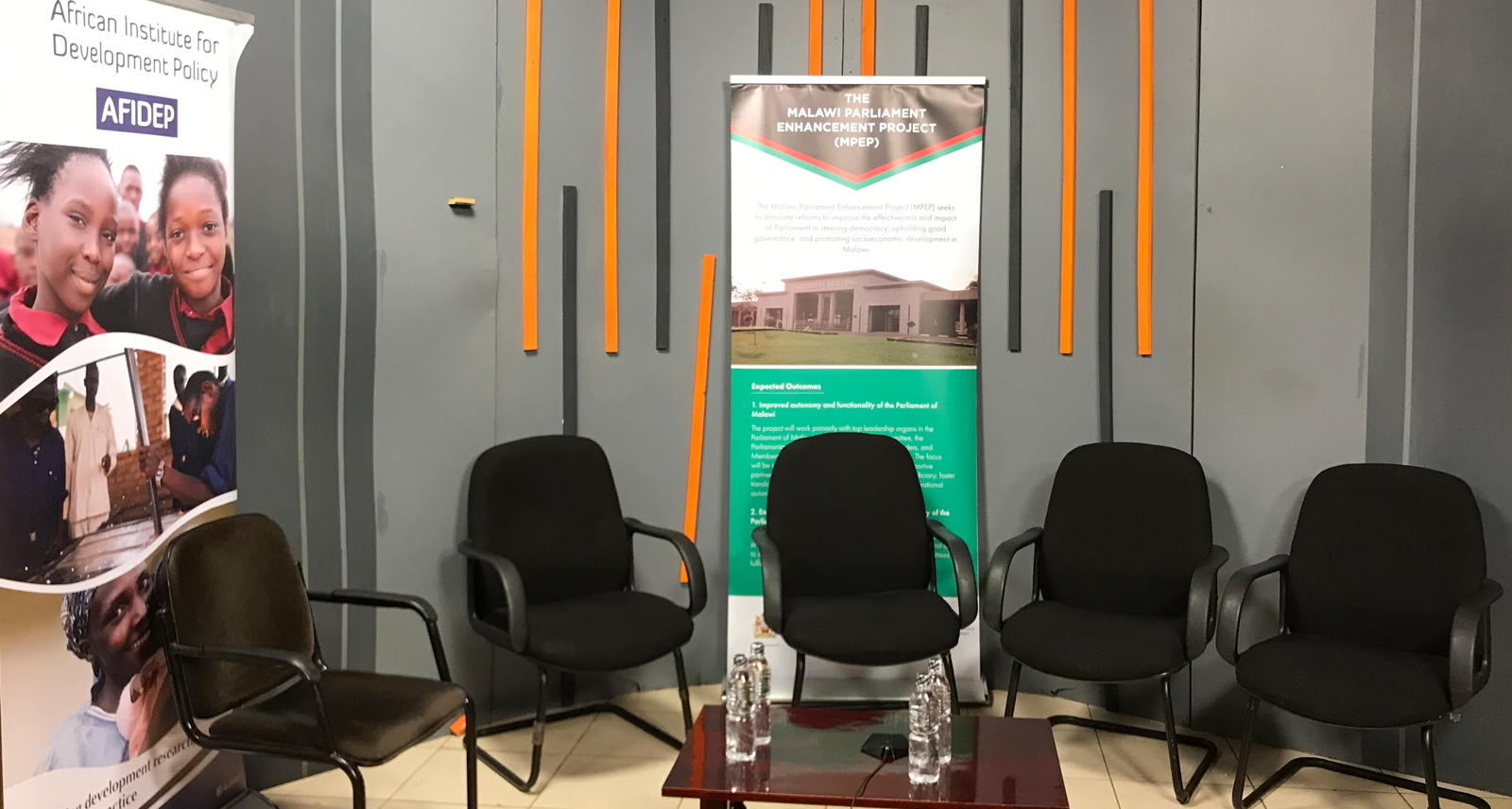Blogs

At the heart of effective Parliament work is the impact that comes from the contributions of Parliamentary Committees. In carrying out its legislative, representative and oversight functions, the Malawi Parliament has 19 committees comprising of elected Members of Parliament (MPs) from different political parties. These committees are appointed in order to respond to, consider, inquire into, and deal with issues entrusted to it by the House. It is of note that Parliamentary Committees in the Malawi Parliament are guided by the Handbook on Committee Procedure and Practice.
Appointment of members to a committee is through the party “chief whips” who present the names of their party members who they would like to be represented by to the Parliamentary Business Committee. Already, one may wonder then what criteria is used by these parties to select members. While the understanding has been that members be selected into committees based on merit and experience, this has not always been the case as was evidenced in some of the findings at the committee chairs workshop.
The Parliament of Malawi and the African Institute for Development Policy (AFIDEP) through the Malawi Parliament Enhancement Project (MPEP) conducted a workshop for committee chairs to review, in hindsight, committee performance in the 2014-2019 Malawi Parliament. This was a two-day workshop that took place between 17-18 December 2018 at Kabumba Hotel in Salima, Malawi. The workshop participants discussed the achievements of the various committees, the challenges undermining their performance, lessons from other Parliaments, opportunities for improving committee performance, the monitoring and evaluation (M&E) tools for committees, and made recommendations for improving committee performances.
The workshop was held with the objective of reviewing and discussing the performance of committees in the current Parliament, with the larger objective being to initiate the process of developing an effective monitoring, learning, and evaluation (MLE) framework for managing committee performance in Parliament. The facilitators of the workshop were Mr. Roosevelt Gondwe, an International Advisory Committee member for MPEP, who is also the former Clerk of Parliament having served the institution for 32 years; Hon. Dan Ogalo, a former Member of the Uganda Parliament, who is also a member of the International Advisory Committee; and Dr. Rose Oronje, the Director of Public Policy and Communications at the African Institute for Development Policy (AFIDEP). The workshop’s attendance was comprised of committee chairs and deputy chairs, and staff members of the Malawi Parliament.
The workshop highlighted some of the main committee achievements in the past 5 years, such as the passing and adoption of Bills that had been shelved for the past 3 years, for example, the Tobacco Bill; the successful conducting of commissions of inquiry; undertaking study tours to other Parliaments to learn how to best implement the work of the Malawi Parliament; the increase in the number of private member Bills that have been introduced; and taking Parliament to the people, among other achievements.
However, with these achievements in the last 5 years, also came the challenges faced by MPs in their various committees.
In order to respond to all the emerging public policy issues, committees require adequate time allocated to their meetings. However, this is not always the case, as not only do committees have limited time allocations for their meetings, they also face the challenge of delayed and inadequate funding. Further, some MPs have the tendency to abandon the committees whose membership is considered to have no monetary incentives, leaving these committees underrepresented. The Committee on Defense and Security was cited as one such committee that has seen its members abandon ship on different occasions.
Some challenges were highlighted as being beyond the control of committee members. Much as Standing Orders outline the guidelines for allocation of MPs to various committees, this protocol is often overlooked and instead politics come into play as MPs are allocated to committees on the basis of loyalty to their parties. This criteria, in turn, affect the committee’s performance as it disregards the expertise of each MP to function in certain allocated committees. There is also a lack of seriousness from the Executive when it comes to acting on recommendations from the various reports on crucial issues presented by committees.
On the other hand, committee chairpersons also identified opportunities that may be worth exploring in the upcoming 2019-2024 Parliament. Much as the interaction between the Executive and Parliament has been limited, MPs view the establishment of the Government Assurance Committee as a means to overcome this hurdle as it allows for there to be constant interaction between the Executive and Parliament. Establishment of the Parliament Budget Office is seen as an opportunity to enhance the performance of committees on budget analysis.
At the end of the evaluation workshop chairpersons of various committees came up with recommendations, which, in their view, if adopted will assist in the way that Parliament carries out its mandate with the help of various committees. Looking at the legal framework and the general management of committees, recommendations were two-fold. It was suggested by the various chairpersons that there is need to amend the Standing Orders to address the Executive’s failure to respond to committee reports adopted in the House; Standing Orders pertaining to composition of the committee should be revised to take into account the Gender Equality Act 60/40 on composition of committees; as well as review the size and mandates of the committees to avoid overlaps in carrying out their work. Additionally, there is a need to train committee chairs and vice-chairs on their mandates before they assume office so as to enable them to guide committees procedurally. In order to ensure improved performance by the committees, there is need to set up an M&E unit that monitors all committee work, each committee upon assuming office should prepare annual work plans that will be submitted to the committee of chairpersons. There is a need for committees to work closely with the Parliament Public Relations office in ensuring that all work done by committees is disseminated to the public. Lastly, each committee should prepare a legacy report when their term in Parliament comes to an end to aid in a smooth transition for new committees elected with each incoming Parliament.
The Committee Chairs workshop followed one held with the Committee Clerks, who had recommended that MPs be assigned to committees based on criteria that among other things considers their areas of expertise. Citing South Africa, they had also recommended having documentation of committees work and initiatives for reference by future committees. The Chairpersons considered recommendations from the clerks and agreed to i) using the criteria stipulated in the Standing Orders with regard to selecting MPs into various committees and, ii) working to produce legacy reports at the end of 5 years of committee work.
AFIDEP continues to work with committee chairs as a follow-up to these recommendations from the workshop and other initiatives to strengthen Parliamentary committees in Malawi.
Related Posts





